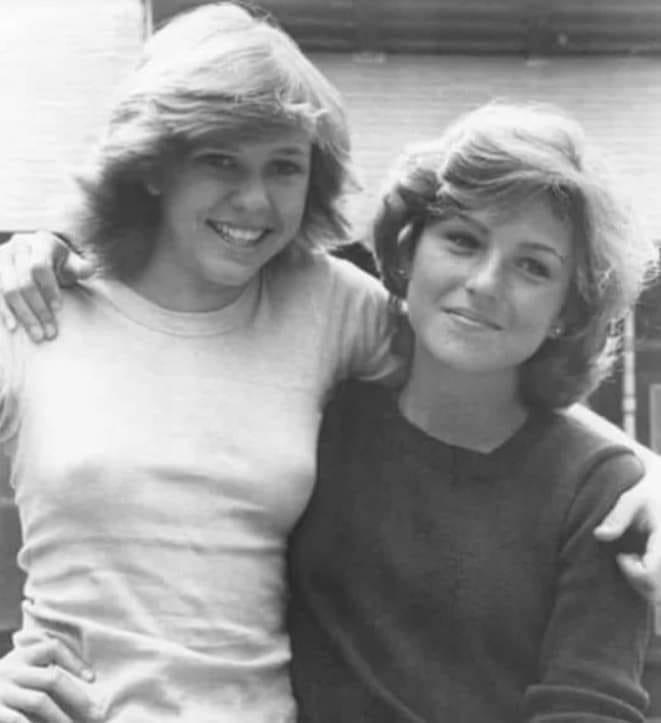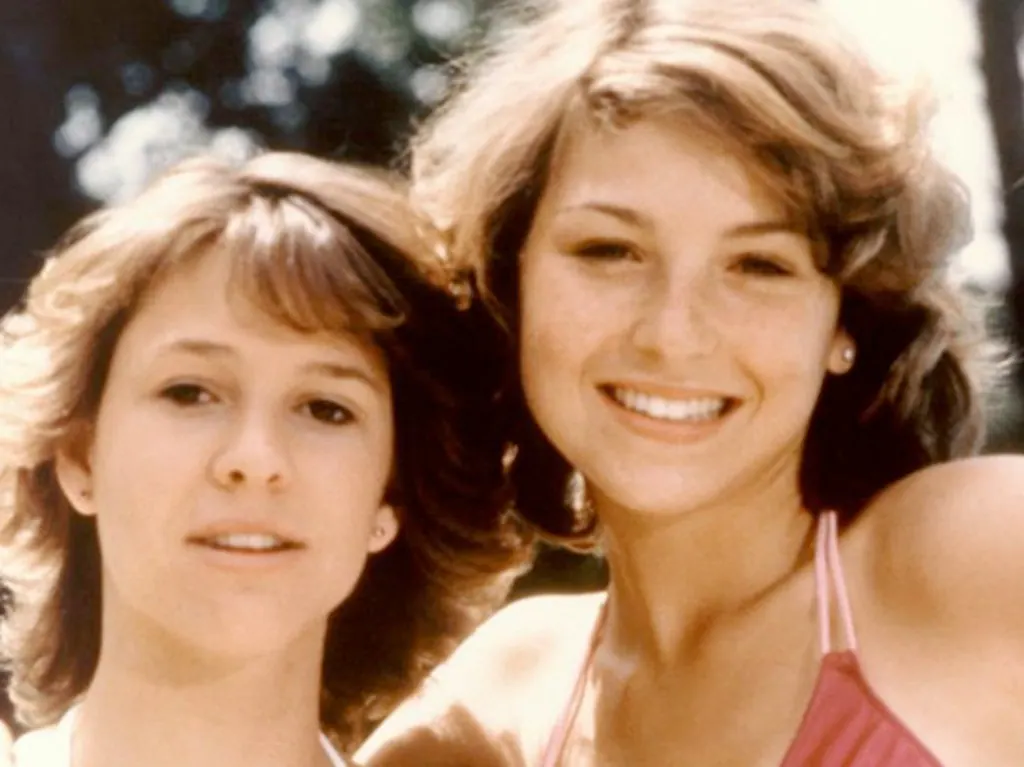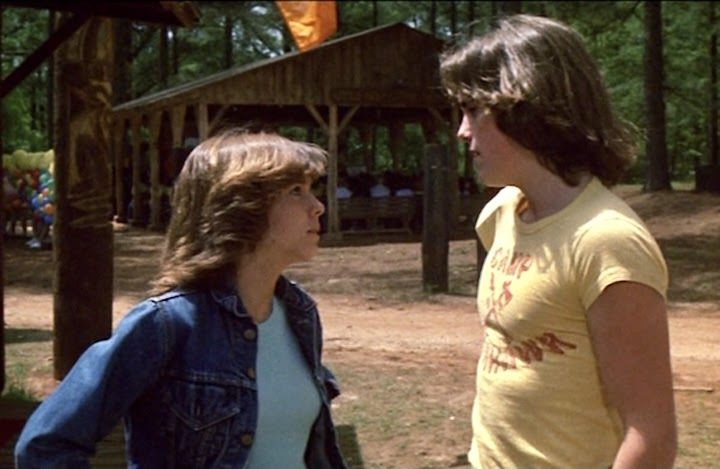When it comes to 1980s teen comedies, certain films are etched in pop culture’s memory for their crude humor and rebellious spirit. However, Little Darlings (1980), starring Kristy McNichol and Tatum O’Neal, offers something surprisingly different—a thoughtful, emotionally nuanced take on adolescence. Beneath its seemingly scandalous premise lies a film that explores teenage relationships, societal pressures, and self-discovery through the lens of two young girls navigating their first summer camp.
A Daring Premise with Depth and Sensitivity

On the surface, Little Darlings seems like a typical teen romp: two teenage girls, Angel (Kristy McNichol) and Ferris (Tatum O’Neal), make a bet to see who can lose her virginity first during their summer camp stay. Yet the film quickly defies expectations, delivering a story that’s less about the act itself and more about the emotional journey that accompanies it.
Unlike the bawdy comedies of the time—think Porky’s (1981) or Fast Times at Ridgemont High (1982)—this film avoids exploiting its characters or indulging in cheap laughs. Instead, it treats its subject with maturity, exploring how cultural expectations and personal insecurities shape teenage experiences.
The Female Gaze Takes Center Stage
One of Little Darlings’ most refreshing elements is its commitment to telling the story from a female perspective. This isn’t just a movie about girls—it’s a movie for them. The film prioritizes the female gaze, a rarity in the genre, and frames the experiences of Angel and Ferris with authenticity and empathy.
Take, for instance, a scene where the girls spy on boys skinny-dipping across the lake. The boys are mere silhouettes in the distance, emphasizing the girls’ curiosity rather than objectifying their subjects. Later, when Angel interacts with her love interest Randy (played by a young Matt Dillon), the camera subtly captures her lingering gaze, flipping traditional gender dynamics. It’s a bold move for a film from 1980 and one that still feels relevant today.
Kristy McNichol’s Standout Performance
While Tatum O’Neal had already earned an Oscar for Paper Moon (1973), it’s Kristy McNichol who truly owns the screen in Little Darlings. As Angel, McNichol delivers a layered performance that captures the vulnerability beneath her tough exterior. Angel, raised by a single mother on the wrong side of the tracks, initially views sex as a way to prove her worth. However, her experience with Randy forces her to confront her feelings of loneliness and disappointment.
In one particularly poignant moment, Angel reflects, “God, I feel so lonesome,” shortly after her encounter with Randy. It’s a raw admission that underscores the gap between expectation and reality—a theme that resonates universally.
Tatum O’Neal and the Complexity of Ferris
As Ferris, Tatum O’Neal plays a girl from a wealthy background who approaches the bet with a mix of curiosity and naivety. Her arc is equally compelling, particularly in her interactions with Gary (Armand Assante), an older camp counselor. While Gary rebuffs her advances, his gentle approach highlights the delicate balance between authority and understanding.
Ferris’s story adds nuance to the film, showing how societal pressures push teenagers to act older than they feel. Her eventual realization that emotional connection matters as much as physical intimacy adds depth to her character and reinforces the film’s mature approach to its subject.
The Supporting Cast Brings Charm and Humor

The supporting cast of Little Darlings adds layers of humor and personality to the film. Cynthia Nixon, in her film debut, shines as Sunshine, the quirky, hippie-inspired daughter of counterculture parents. From handing out niacin tablets to warning about the dangers of meat consumption, Sunshine delivers memorable comedic moments while staying true to her free-spirited character.
Matt Dillon, as Angel’s love interest, brings charm and vulnerability to his role, offering a glimpse into the insecurities teenage boys face in relationships. Meanwhile, Jenn Thompson steals scenes as a mischievous younger camper who sneaks into a men’s bathroom to steal a condom dispenser—adding levity to the film’s more serious themes.
Breaking Stereotypes and Defying Tropes
What sets Little Darlings apart from other teen comedies is its refusal to reduce its characters to clichés. Angel and Ferris are not defined by their sexual experiences but by their emotional growth. The film also avoids exploiting its male characters, portraying Randy and Gary as more than just love interests.
Even the humor feels grounded and relatable. From the girls’ awkward attempts to navigate puberty to their exaggerated bravado, the film captures the messy, often hilarious realities of adolescence without resorting to slapstick or vulgarity.
Ahead of Its Time: Social Commentary and Emotional Honesty
Released before the wave of raunchy 1980s comedies, Little Darlings offers a surprisingly progressive take on teenage sexuality. It addresses topics like contraception, peer pressure, and gender dynamics with sensitivity and honesty. For instance, when Angel hands Randy a condom during their encounter, it’s a subtle nod to the film’s acknowledgment of female agency and responsibility.

The movie also critiques the double standards surrounding s*x. The girls face judgment and taunts from their peers, highlighting how societal expectations often place undue pressure on young women. Yet the film never moralizes or punishes its characters; instead, it invites viewers to empathize with their struggles and triumphs.
A Timeless Coming-of-Age Story
While Little Darlings is very much a product of its time—complete with a 1970s-inspired soundtrack featuring Blondie and John Lennon—it remains a timeless exploration of growing up. Its themes of identity, self-discovery, and emotional vulnerability resonate across generations, making it a film worth revisiting.
The movie’s willingness to prioritize authenticity over sensationalism sets it apart from its peers. It reminds us that coming-of-age stories don’t need to rely on shock value to leave a lasting impact.
Conclusion
Little Darlings (1980) is more than just a teen comedy; it’s a heartfelt, nuanced look at adolescence that challenges stereotypes and celebrates the complexity of growing up. With standout performances from Kristy McNichol and Tatum O’Neal, a thoughtful script, and a refreshing focus on the female perspective, this film remains a hidden gem of 1980s cinema.
If you’re in the mood for a movie that blends humor, heart, and a touch of nostalgia, give Little Darlings a watch. It’s a reminder that even the most unexpected films can leave the deepest impressions.


